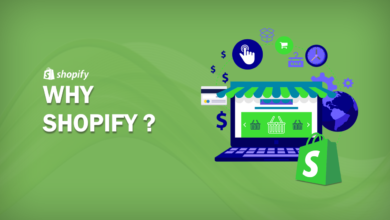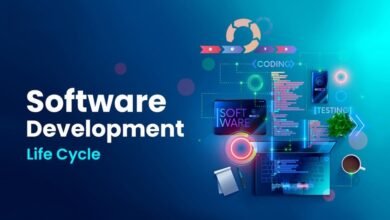
The manufacturing industry has been one of the most important pillars of society and economy for centuries, providing the products and materials that we need to live and thrive. In recent years, however, the sector has been under immense pressure to increase efficiency and productivity in the face of global competition.
Aadoption of new technologies, such as the Internet of Things (IoT), is seen as a key enabler in this quest for improved performance.
In this blog, we are going to talk about the impact of IoT in manufacturing and how it is revolutionizing the the manufacturing industry.
Impact of Internet of Things (IoT) on Industrial Automation
Industrial Internet of Things (IoT) is a network of connected devices and people that collect, share, and act on data. The industrial IoT is transforming how manufacturers create and deliver their products.
IoT-enabled machines can communicate with each other and with humans to share data and insights that can be used to improve manufacturing processes. For example, an IoT-enabled machine might be able to detect when it needs maintenance and send a signal to the maintenance team. Or, an IoT-enabled machine might be able to share data with other machines to optimize production.
Industrial IoT is also changing how manufacturers interact with their customers. For example, an automated manufacturing process might be able to share data with a customer in real-time, so the customer can track the progress of their order.
The industrial IoT is still in its early stages, but it has the potential to revolutionize manufacturing. In the future, manufacturers will be able to use IoT data to create custom products, improve product quality, and speed up production. The industrial IoT will also create new opportunities for businesses to enter the manufacturing market.
This is just the essence of the IoT’s impact on manufacturing industry. Let us understand in detail about IoT on industrial automation.
Internet of Things
IoT app development is a process of creating software applications that can be used to manage and monitor devices connected to the Internet of Things. These apps can be used to control devices remotely, collect data from IoT devices, and more. IoT app development can be use to create a variety of applications, including:
Remote device management apps: These apps can be use to remotely control IoT devices, such as adjusting settings, issuing commands, and more.
Data collection apps: These apps can be used to collect data from IoT devices, such as sensor data, device logs, and more.
Analytics apps: These apps can be use to analyze data collected from IoT devices, such as to identify trends, track performance, and more.
IoT app development can be use to create a variety of other types of applications as well, such as:
Automation apps: These apps can be use to automate tasks, such as turning off lights when no one is home, adjusting thermostats based on weather conditions, and more.
Security apps: These apps can be use to improve security, such as by adding two-factor authentication to IoT devices, receiving alerts when IoT devices are tamper with, and more.
Monitoring apps: These apps can be use to monitor IoT devices, such as to track their location, check their status, and more.
Internet of things products
Internet of Things technology is being use more and more in manufacturing. IoT can help simplify tasks and make the manufacturing process more efficient.
For example, IoT can be use to track inventory levels and production data. This information can then be use to improve the manufacturing process.
IoT can also be use to monitor equipment and machinery. This information can be use to improve maintenance schedules and prevent downtime. IoT can also be use to track employee productivity.
This information can be use to improve employee training and motivation. IoT can also be use to monitor environmental conditions in the factory. This information can be use to improve safety and working conditions.
IoT can also be use to track customer orders. This information can be use to improve production planning and scheduling. IoT can also be use to monitor the supply chain.
This information can be use to improve inventory management and customer satisfaction. IoT can also be use to monitor traffic conditions. This information can be use to improve logistics and transportation.
IoT can also be use to monitor energy usage. This information can be use to improve energy efficiency and reduce costs. IoT can also be use to monitor the performance of marketing campaigns.
This information can be use to improve ROI and customer acquisition. IoT can also be use to monitor social media sentiment. This information can be used to improve brand reputation and customer loyalty.
Internet of things devices
Internet of things devices have transformed the way we live and work. They can be found in our homes, in our cars, and in our workplaces. IoT devices have the ability to connect to the internet and to each other, making them ideal for industrial automation. IoT devices can be use to automate tasks, to improve efficiency, and to save time.
In industrial settings, IoT devices can be use to monitor and control equipment, to track inventory, and to optimize production processes. IoT devices can also be use to monitor and manage environmental conditions, to ensure safety, and to reduce costs.
IoT Gateway Devices
Internet of Things device are critical for enabling digital transformation and connecting IoT devices to the internet.
By integrating protocols for networking, managing storage and edge analytics on data, and facilitating secure data flow between edge devices and the cloud, Internet of Things gateway devices enable next-generation devices to be a part of the IoT.
IoT gateway devices enable organisations to capitalise on the benefits of IoT, including improved operational efficiency, better decision making, and increased revenue. IoT gateway devices can help organisations to reduce costs, improve customer satisfaction, and gain a competitive edge.
To realise the full potential of IoT and digital transformation, organisations need to carefully consider their IoT gateway device strategy. The right IoT gateway device can make all the difference in terms of ROI and success. IoT gateway devices come in a variety of form factors, including routers, gateways, and bridges.
Industrial IoT Development Kits
If you’re looking to get start with IoT industrial automation, development kits are the way to go. These kits provide a complete design environment for engineers and solution architects, making it easy to develop and deliver IoT applications.
With a range of different hardware platforms available, from low-power ARM-based designs to powerful multi-core Intel Atom gateways, there’s a kit to suit every IoT application requirement. So what are you waiting for? Get starte with IoT industrial automation today.
Conclusion
When it comes to the manufacturing industry, IoT can be a powerful tool for automating various processes. By connecting different devices and machines to the internet, manufacturers can collect data and use it to improve efficiency and quality control.
IoT app development company can help manufacturers take advantage of IoT technology by developing custom applications that can automate various tasks.
IoT can help manufacturers save time and money by automating repetitive tasks, such as monitoring production line equipment or collecting data from different machines. In addition, IoT can also help improve quality control by providing real-time data that can be use to identify and fix problems quickly.
IoT app development companies can help manufacturers take advantage of IoT technology and improve their operations.




